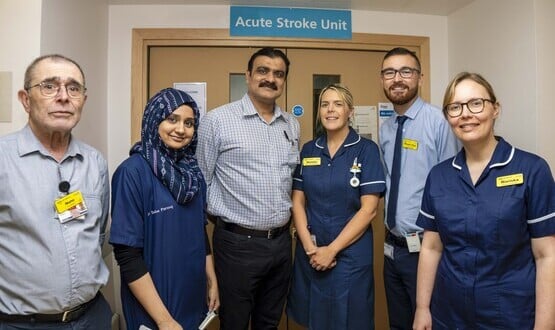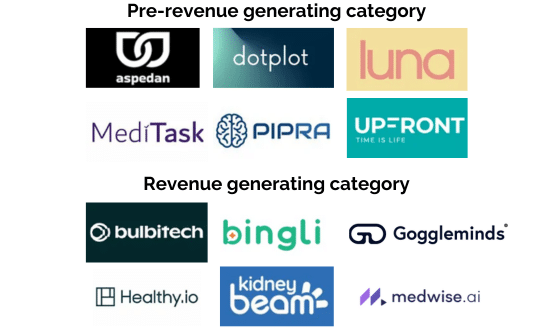Examining: University Hospitals Birmingham
- 4 February 2013

The news that University Hospitals Birmingham NHS Foundation Trust has bought a new picture archiving and communications system from Agfa will be of interest to many trusts making decisions about the future of their digital imaging systems.
As the contracts placed by the National PACS Programme come to an end, trusts like Birmingham, which sit in CSC’s local service provider area, are having to make choices about what to do next.
Broadly, their options are to go out to tender, or to make use of a national framework negotiated by NHS Supply Chain for PACS and associated technologies, that is designed to enable them to make tactical or strategic decisions about the way forward.
Testing the market
Paul Brettle, deputy divisional director of operations for support services and a radiographer by background, says Birmingham’s decision to re-tender predated that offer.
“We were originally a national programme site,” he says. “We went to tender on January 18 2012, but we were looking well before then – and the framework was not in place at that time. We could see a train coming towards us and we had to make a decision.
“We discussed it internally and agreed that going out to the market would give us the best of both worlds.” In other words, would leave the trust free to explore the market while keeping an eye on any national framework that might emerge in the meantime.
However, the decision to go with Agfa was made on the basis not just of value for money but also quality – and was heavily influenced by clinicians.
“The clinical involvement was really a key benefit,” Brettle now says. “In the national programme, in its previous life, you got what was on offer.
“In this procurement we have been able to involve our clinical teams in making the decision about what PACS we have for the next few years.”
Buying quality
University Hospitals Birmingham’s services are housed in a building that is only two years old and benefit from an IT environment that is known to be very forward thinking.
The trust chief executive, Dame Julie Moore, has been very outspoken about the drive to use metrics in clinically meaningful ways to drive efficiency, productivity and quality.
“We are developing and expanding our services by the day,” says Brettle. “So to have a PACS that would restrict us in anyway would be a negative thing.
“It needs to grow with us and we need to be able to tailor it to meet our future needs. That was virtually impossible with our previous PACS.”
Brettle is talking both about the previous PACS’ functionality and its capability to integrate with other systems. IMPAX will integrate with the trust’s clinical portal and the existing radiology information system.
“We should have the ability for clinicians to report on or off site or from another trust,” he adds. “That’s fairly key because their time is limited and they are an expensive resource. They do not need to be sitting in an office in radiology reporting anymore.”
Clinicians liked the front-end of the Agfa IMPAX – one of three systems that made a final bid. They found it intuitive and felt that using it would not require hours of training.
IMPAX also includes business intelligence that, according to Agfa, “transforms [the trust’s] data into further actionable insight to enable more efficient operations by measuring and monitoring key performance indicators and providing real-time reports and dashboards, as well as historical reports.”
Brettle says this is an important consideration. “I am a clinician by background but I am now manager of what is one of the largest radiology departments in the UK,” he says.
“We are, in a sense, a business and we treat patients not just from Birmingham but from the whole UK and internationally too.”
Leading on information
The trust employs around 6,900 staff and provides adult services to more than half a million patients every year, from a single outpatient appointment to a heart transplant.
It is a regional centre for cancer, trauma, burns and plastics, and has the largest solid organ transplantation programme in Europe.
Mental health services and certain women’s health services are provided at the nearby mental health and Birmingham Women’s hospitals. It is also the leading teaching hospital in the West Midlands.
“We need information if we are going to be effective,” says Brettle. “Although our current system can provide it, you have to know how to do it. We are far more interested in seeing something that is easy to manage at the front end.
“Standards reports are easy to set up, but the real value will come with our ability to understand what is happening in computed tomography this week, or with that particular scanner and the ability to drill down into that level of detail real time.”
Going for a managed service
The PACS needs to be reliable too. University Hospitals Birmingham’s contract with Agfa is for a managed service in which there is continuous monitoring of equipment with proactive management to make sure the PACS operates continuously and that data is always available.
The trust is looking to a June 2013 go live and has all the various clinical leads and project teams in place and will be working closely with Agfa to make sure IMPAX delivers.
Brettle says there is an exciting few months ahead. “We have all the necessary resources in place and a monitoring programme and see no reason to think we will do anything other than go live on time and in budget.”




